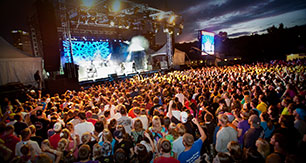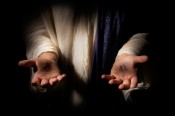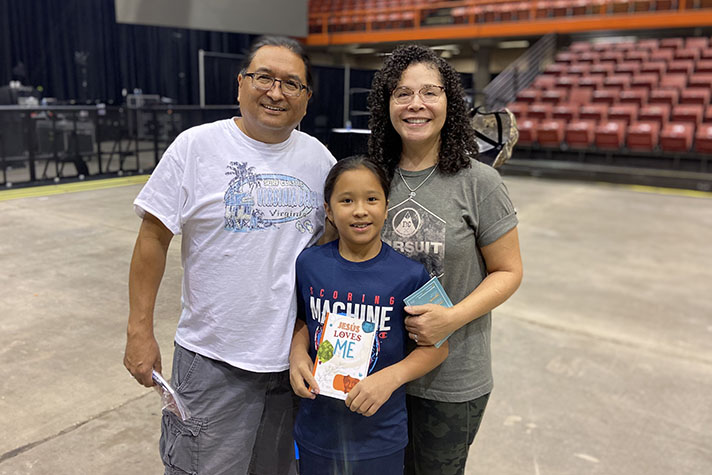
For many, it was a typical Saturday.
But for the 1,100 people gathered at The Monument in Rapid City, South Dakota, they witnessed an indescribable moment.
Dead souls suddenly gained life, eternity changed forever.
Quicker than the turning yellow leaves of oak and ash trees along the expansive hillsides, people walked down from their seats in the balcony to the cement floor, compelled to follow Christ after hearing Will Graham speak during the second evening of the Black Hills Paha Sapa Celebration.
“When we ask Jesus to forgive us of our sins and come into our hearts, that’s what it means to be born again,” Will Graham said to both those in person and people across the world watching online. He read from the book of John, chapter 3, about Nicodemus, an upstanding man who learned what it meant to truly follow Jesus.
>> See photos from Saturday night’s Celebration.
Looking out at a crowd—likely mostly church goers—Will Graham asked a point blank question.
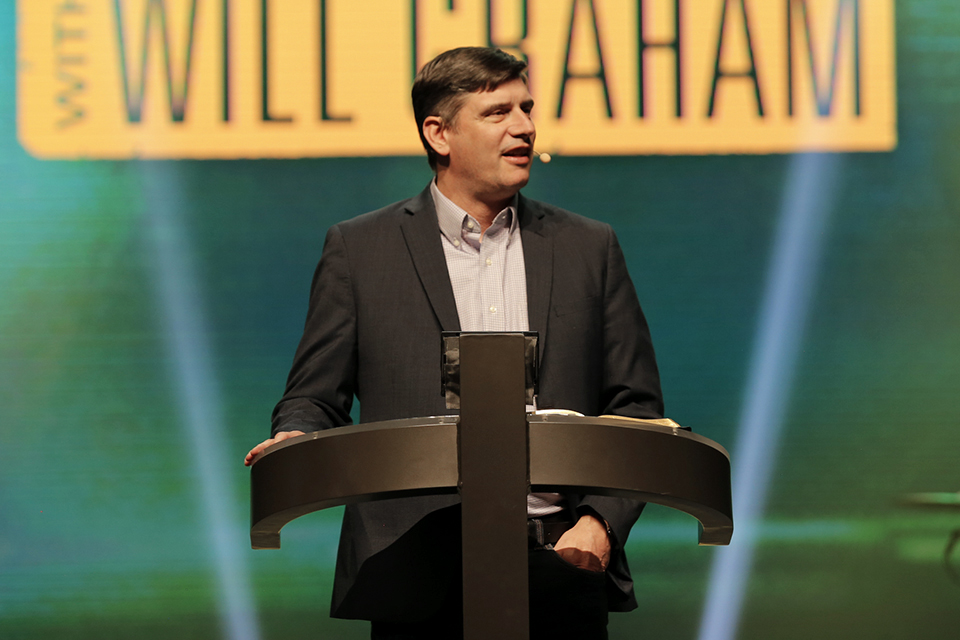
“I’m not asking if you’re a religious or good person, but do you know where you’d spend eternity if tonight was your last night?”
Ten-year-old Elisha Youpee sat in an orange chair beside his parents, realizing he was unsure. The family had been at a nightly prayer gathering at Faith Temple Church of God in Christ and made it just in time to drop by the Celebration.
“Church is wonderful … but church doesn’t save you. Getting [baptized] does not save you. It’s having your sins forgiven. Have you asked God to forgive you of your sins?” Will Graham said.
“No one else can get you saved. Your mom can’t make you a Christian. Your dad can’t make you a Christian. Your church can’t make you a Christian,” he continued. “You have to be born of the Holy Spirit. Only He can make you a Christian, turn you into a follower of Jesus. It doesn’t matter how young or old you are, this is a decision you have to make for yourself.”
Elisha’s mom, Renay, sat next to her son, praying, “O Lord God, please, please send him down.”
And He did.
Elisha looked up at his father Marvin, who had already taught him a lot about God, and said, “Dad, let’s go down.”
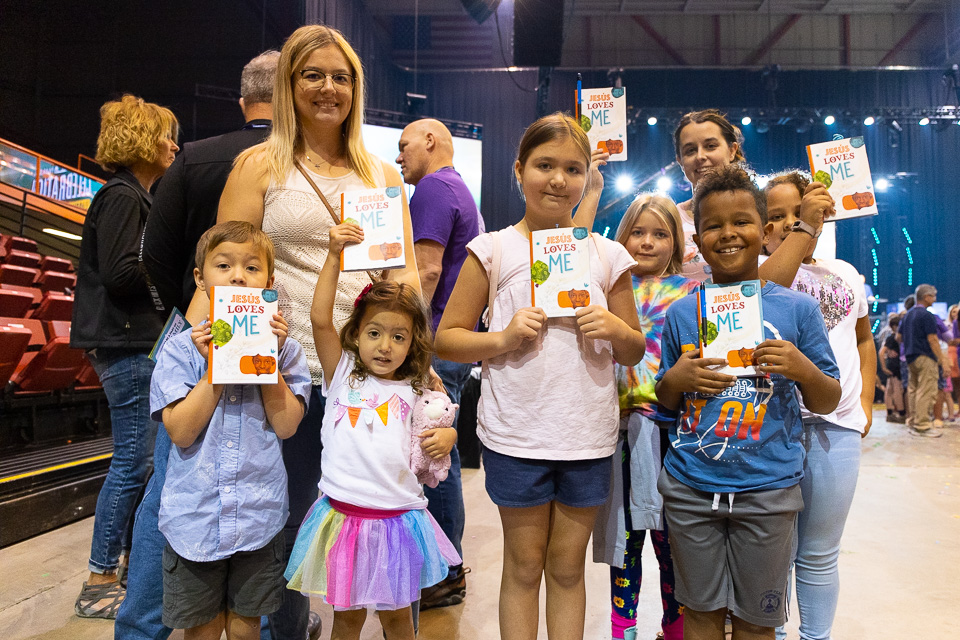
Standing beside his father, Elisha repeated Will Graham’s prayer of forgiveness—alongside dozens of others who came forward to the stage area, some with tear-filled eyes.
“[The prayer] made me feel like I knew that [God] was in my life,” Elisha said.
But according to Will Graham, repeating a few words didn’t make Elisha a Christian. Rather, it was his act of faith in stepping forward, which showed his belief in God.
Elisha spent the next few minutes talking with a trained counselor, who high-fived him after they recited John 3:16 together and took a photo of Elisha with his parents to document the special day.
“Welcome to the family of God,” she said, before leaving him with a booklet that included the gospel of John.
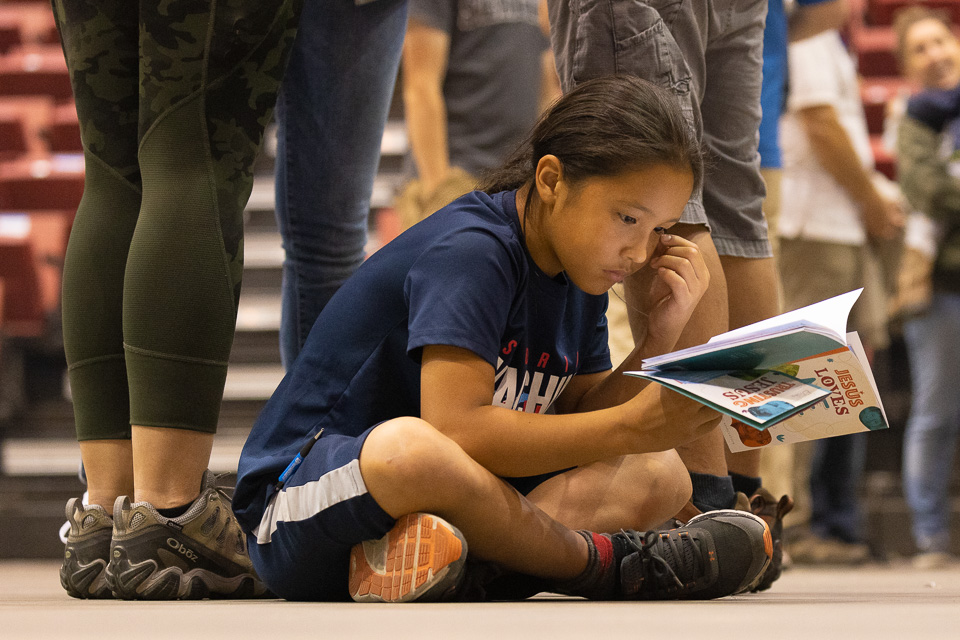
He was living proof that a statement from Will Graham’s grandfather, Billy Graham, was possible.
Although Billy Graham never had the chance to visit Rapid City, he befriended and supported many indigenous people during his ministry, and said,
“The greatest moments of Native History lie ahead of us if a great spiritual renewal and wakening should take place. The Native American has been a sleeping giant. He is awakening. The original Americans could become the evangelists who will help win America for Christ!”
Indeed, the giant is stirring.
Elisha’s parents are a Native American couple who met 22 years ago. Marvin is part of the Fortspeck Sioux in Montana while Renay is enrolled with the Cheyenne River Sioux tribe in South Dakota.
At first, their relationship didn’t work out.
“At that time, we were both practicing … what we call witchcraft, because that’s what it is. It’s anti-Bible,” Marvin said.
“We were practicing religious cultural ceremonies that we don’t have to, just like the Sundance,” Renay added, mentioning how men and women pierce their flesh and dance as an offering to the Great Spirit.
“Because of Jesus Christ, His flesh was already torn, He was beaten and bruised for our sins, we no longer have to practice those ceremonies.
“That’s something I feel like the Indian community does not understand or will not accept because of [fear of] losing the culture. That was part of why we practiced the ceremonies we did, because we wanted to honor who we were.”
But God still interceded in Renay and Marvin’s lives, revealing Himself to them. They each became Christians separately before reconnecting and getting married in the Rapid City church they’re active in today.

Still, life in Rapid City hasn’t always been easy for the Youpees as Native Americans, even though they’re the second largest ethnic group in the region.
“[There’s] a residual prejudice that we face as natives from people in the city. We’ve learned that because of who we are in God, that doesn’t affect us,” Marvin said.
Renay said it’s difficult to connect with the city’s indigenous community, too.
There’s cultural, spiritual activities the family refrains from “because that activity puts a wall between us and God,” Renay said. “We’re even isolated more than a normal Christian would be because of that. It’s hard for us to find Native Christians.”
The Youpees believe the reason many tribal people don’t know the Lord is due to a “spirit of confusion.”
“Their desire for identity causes them to hold onto something even though it’s not good for them,” Marvin said, adding that many also have shaped their perspective of Christians from their ancestors’ stories of the church’s brutal mistreatment of Native Americans.
“When you get on a reservation and you’re a Christian, you hear that’s a white man’s religion,” he continued. “One thing about the past that Jesus tells us [is] we can walk away from that. We can leave that where it needs to be and concentrate on our walk with Jesus.”
That’s what Marvin hopes will happen one day soon among Native Americans, who “hold onto [their practices] dearly.
“Imagine the native people holding onto Jesus like that,” Marvin said, “and the effort they would put into praying and worshipping and spreading the Word and doing, accomplishing the Great Commission that would spread like wildfire.”
